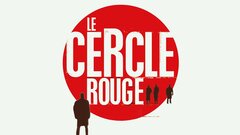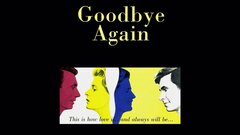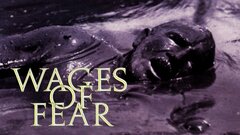An exceedingly charming and debonair leading man who became a symbol of the Gallic gentleman to moviegoers worldwide, Yves Montand was also a very famous singer who received his start performing in Paris nightclubs during World War II. After establishing himself in that profession, Montand also made his mark in the movies, first in France and later in Hollywood.
Montand's gifts as a singer were widely celebrated, leading to many popular recordings and highly successful performances in various countries and at The New York Metropolitan Opera and on Broadway. Throughout his motion picture career, Montand often portrayed rugged, world-weary men, but off set, he was famous for his enthusiasm, dedication, and imagination. While likely remembered best today for his vocal gifts and work in lighter motion pictures like "Let's Make Love" (1960), Montand was also quite capable of giving persuasive dramatic performances, and that talent solidified his legacy as one of the most important European stars of that era.
Although he was regarded as quintessentially French, Yves Montand was actually Italian. He was born on Oct. 13, 1921 in Monsummano Terme, Italy under the name Ivo Livi. Three years later, his Jewish family immigrated to France to flee the rising Right Wing influence in Italy, becoming French citizens in 1929. Montand attended school until age 11 in Marseilles when he was put to work following the bankruptcy of his father's broom-making business.
He held jobs in a hairdressing salon, a spaghetti factory, and on the waterfront, but really longed to be a performer. After working to overcome his stage fright, Montand made his debut in 1938 and was quickly a regular on the music hall scene. He crafted the name Yves Montand from the Italian his mother used when calling him to come upstairs ("Ivo, monta!").
Managing to avoid being sent to a labor camp through bribery, he relocated to Paris in 1943. Superstar Edith Piaf saw one of Montand's performances - he specialized in French versions of "cowboy songs" with his big hit being ''Dans les Plaines du Far West" - the following year and made him her opening act at the Moulin Rouge. The pair was romantically involved for two years - not the last famous woman to fall under the Frenchman's spell. Montand made his film debut with a supporting part in the Piaf vehicle "Star Without Light" (1946), followed by his first outing as a leading man in "Gates of the Night" (1946).
Inspired by Piaf's example, Montand sought to improve himself, refining his stage persona, becoming well-read, incorporating the poetry of Jacques Prévert into his act, and forming his own jazz group. Montand married acclaimed actress Simone Signoret in 1951, and made his mark as an actor in Henri-Georges Clouzot's classic suspense thriller "The Wages of Fear" (1953), which told of desperate men hired to transport trucks laden with nitroglycerine over treacherous roads.
Also notable were his performances in the Italian drama "The Wide Blue Road" (1957) and in a French adaptation that same year of Arthur Miller's play "The Crucible," starring opposite his wife in a reprise of the stage version they had appeared in two years earlier. Montand's father was a dedicated Communist, and Signoret and Montand were enthusiastic supporters of the leftist political movement in France. However, following the Russian invasion of Hungary in 1956, Montand was criticized for going ahead with his planned tour of the Soviet Union. While there, he and Signoret dined with Nikita Khrushchev and these actions temporarily prevented them from receiving a Visa to the United States.
While he expressed his support and signed numerous petitions backing their cause, Montand stopped short, however, of ever actually joining The Communist Party and disapproved of the Russians' actions in Budapest.
During this time, Montand's singing career continued to thrive and despite speaking little English, he mounted two highly successful Broadway runs of the one-man show "An Evening with Yves Montand" in 1959 and 1961. The performance included various songs, and he occasionally spoke in French, Italian, or Spanish, but relied mostly on pantomime and charm to communicate with English speakers in the audience.
Montand came off so well on stage that 20th Century Fox tapped him to star opposite none other than Marilyn Monroe in "Let's Make Love" (1960), a part already turned down by top leading men like Charlton Heston, Cary Grant, and Gregory Peck. Montand recited his lines phonetically and displayed little chemistry with Monroe onscreen, but that was apparently not the case in real life as they had a torrid extramarital affair during shooting that was mostly public knowledge at the time, but received even more ink later on following Signoret's confirmation of it in her 1975 autobiography.
"Yves Montand on Broadway" (ABC, 1961) was a network TV edition of the live show, and Montand appeared in three additional Hollywood features, "Sanctuary" (1961), as a Cajun bootlegger, "Goodbye Again" (1961), and the Shirley MacLaine romantic comedy vehicle "My Geisha" (1962), during which he allegedly had a second co-star affair with MacLaine. That year, Montand also had the distinction of starring in the first television program that was broadcast from Europe to America via the new Telstar satellite.
Leaving singing aside for a few years, Montand concentrated on movies and other notable assignments during this period that included his turn as a champion race car driver in John Frankenheimer's big-budget epic "Grand Prix" (1966) and the all-star World War II drama "Paris is Burning" (1966). Montand garnered the highest acclaim he had yet to receive as an actor for the Costa-Gavras films "Z" (1969), "The Confession" (1970), and "State of Siege" (1973), overtly political, widely praised pictures that helped elevate the actor's status as a serious dramatic performer.
During this period, Montand also starred in the suave crime thriller "The Red Circle" (1970), opposite fellow French superstar Alain Delon, and made his final American film appearance in "On a Clear Day You Can See Forever" (1970), playing Barbra Streisand's psychiatrist in a rather peculiar fantasy-musical-comedy-drama. Montand was still politically active for leftist causes during this period, getting expelled from Spain in 1975 for drawing attention to the plight of 11 Spanish prisoners scheduled for execution.
Montand resumed touring in 1981, playing many dates in France and several other countries, as well as stops in New York (a week-long run at The Metropolitan Opera marked him as the first singer to ever perform solo there), Washington, Los Angeles, and San Francisco. He made headlines in France in 1984 by disassociating himself from the political left after three decades of support. 44 percent of the French electorate expressed an interest in seeing Montand run for office; he never publicly ruled out the possibility, but seemed content to be seen as a learned commentator.
By this point, Montand was considered passé as a leading man, but his profile was raised one last time via his widely complimented performances as an elderly patriarch in Claude Berri's elegant dramas "Jean De Florette" (1986) and "Manon of the Spring" (1986), which were filmed back-to-back. Signoret died of cancer in 1985 during the production of those films and Montand married his considerably younger personal assistant in 1987, fathering his first son the following year at age 67.
He died of a heart attack on Nov. 9, 1991, on the final shooting day of the film "IP5: The Island of Pachyderms." Two years before the actor's death, he was named in a paternity suit filed by actress Anne-Gilberte Drossard, who claimed that Montand was the father of her daughter, born in 1975. He declined to undergo a DNA test, but because he had not put this refusal in writing, the French court ordered his body exhumed in 1998 to determine the validity of Drossard's assertion. Much controversy ensued over the decision, given Montand's position as a French cultural icon, and the subsequent genetic test failed to show a DNA match. By John Charles






















































































































































































































































